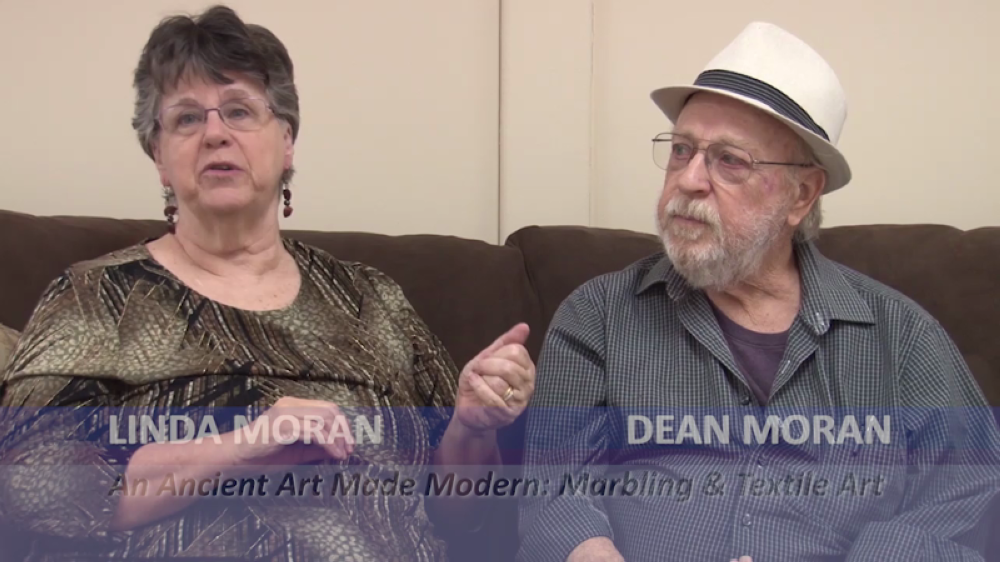

Very often, most people do not come to terms with the fact that their loved one could be battling a condition that might at some point end their life – a reality which many times is met with denial and an endless fight to defy odds and doctors.
With the evolving medical scene and technology, doctors are capable of precising when a condition, especially when non-communicable diseases are involved, can end one’s life and in that situation, there is little one can do to reverse the end-of-life stage of any illness – apart from supporting their loved ones to enjoy their last days on earth.
But for Linda Moran, sitting back and watching her husband Dean Moran go through his last days of life as he battled renal failure, and other conditions that come with it, was not an option, even though he had to spend his final days in a hospice home until he passed on in 2021.
When her husband&039;s health deteriorated after an open heart surgery, Moran put up a spirited fight for Dean – supporting him in all situations and difficulties, including when he suffered a stroke and speech aphasia.
Her husband’s condition, which saw him move from one hospital to another, with different procedures – left Linda with problems to deal with, but also offered her great lessons, which birthed the book she is promoting today.
Moran is using her own experience and lessons to create more awareness on how people can deal with end-of-life stage, highlighting financial and medical challenges – many of which compounded an already dire situation, as well as dealing with some medical doctors who sometimes are not very forthcoming.
From that experience, she authored the book: "The Perks of Hospice: Stories of Love, Life, and Loss”, which touches on the trials and tribulations she encountered, which she hopes can impact others, not only in her native America, but also across the globe.
The book is filled with intimate personal stories, as well as practical checklists for people facing a similar journey and what they need to expect, as they deal with the sad reality to know that you will lose the person you love.
In an interview with The New Times, She sheds more light on how she came up with the idea of writing a book, and what she hopes to achieve by sharing her own experience with others.


The former teacher started documenting her experiences through essays on the platform Medium.com in 2018, nearly two years after her husband had a major operation to fix an abdominal aorta aneurysm in January 2016, but suffered major complications thereafter.
"I started keeping track of all things medical after my "second mom" would go with us to appointments and take careful notes about everything discussed,” she says, explaining how the idea of compiling her notes in a book came about.
She mainly touched on the struggles they faced living in Tucson, Arizona – where they were not able to get either an endocrinologist or kidney specialist, who was not either fixated on numbers or follow-up.
The challenges they faced forced her to become an advocate for better healthcare services in her country – not only for her husband but others too.
"Within two years he had open-heart surgery, with massive complications – atrial fibrillation, a stroke, resulting aphasia. This was in 2017. He continued to deteriorate, and by 2019 he had 9 specialists, none of whom talked to each other, and several who ignored me as the ‘nosy’ wife,” she told The New Times.
"Our primary care doctor suggested maybe it was time for the Hospice programme to step in, as all his numbers (kidney function, etc.) were rapidly declining. His memory was also getting forgetful. So, I took on the care and duties to keep all the medical appointments and prescriptions on track,” she adds.
During that period, Linda wrote about some of the more challenging events – watching him have the stroke and wondering why no one was giving him the stroke shot necessary within 90 minutes, even though it turned out that it does not work if one has just had open-heart surgery.
By sending Dean to Hospice care, it ultimately meant that his days were numbered, and throughout the Covid-19 pandemic, they did Zoom meetings with their hospice team, and she would write about the struggles Dean was facing in coming to grips with a "death sentence."
Dean died in April of 2021, after two years in the hospice programme. Much as it was not a long time in hospice care, it was enough time for Linda to document her experience in an attempt to process her own grief, and deal with the anger she had at his various doctors.
Had the doctors or the system served him well, Moran believes her husband could have lived much longer than he did.
"His death didn't need to happen at that age; he could have had another decade had some of the doctors said, "I wonder why that is happening" and then followed up on the particular issue,”
"For example, a question on why he was so anaemic was met with an "I don't know" when a simple blood test would have looked at his blood count. We wouldn't have had to make an emergency ER run for blood transfusions - certainly not good for his kidneys,” she explains.
Her essays from her engagements with the doctors became a book as she pushed for better care for her husband, even as he lived his last days.
"I want people to know how to navigate our health system. You’ve to become an advocate for you and your loved one. That's how the checklists ended up on the book - simple things you can do for your loved ones before end-of-life is on the horizon,”
"The feedback I have gotten on those checklists has been excellent, especially the one about talking to your doctor and how to get what you need while making him (mostly ‘hims’) think it was his idea,” she says.
While Linda Moran does not know much about how people deal with the end-of-life stage of their loved ones in Rwanda or Africa, a recent article published by The New Times on palliative care in Rwanda, showed her that, while situations could differ, the challenges people face are almost the same.
ALSO READ: Understanding palliative care; why a mindset change is needed to address gaps
At a time where more people are suffering from diseases like cancer, heart diseases, diabetes and others which were unknown to people before, ‘palliative care’ is becoming a common reality for many households in Rwanda and Africa.
Things like ‘palliative care’ or ‘hospice care’ are a whole new phenomenon.
Moran says that in such situations, it is important for people to know how to navigate the health system.
In her own country, which is a developed country, just getting an appointment can take months. Access to healthcare services becomes the first hurdle and later financial struggles for families.
"One other thing is that most doctors are oblivious to the needs of end-of-life patients. Their job is to "fix them" she says, adding that she is currently reading Dr Christian Ntizimira’s book, "The Safari Concept: An African Framework for End-of-Life Care”, to understand how the dynamics are in Rwanda compared to her own country.
Moran advises people to read the book "Being Mortal" by Atul Gawande to understand how to deal with doctors, understanding the end stages of life, and how to set up comfortable living quarters that are friendly, comfortable, and well-staffed.
Apart from Dr. Ntizimira's book, she has also read about outreach to women in Africa through a book by Melinda Gates (The Moment of Lift) and one by Nicholas Kristof and his wife Sheryl WuDunn (Half the Sky), which in a way have informed her.
"I would need to learn a lot more information, as well as just observe and listen to what care-givers and family members have to say. I would also want to know more about the health care systems in the different countries,” she says on her future plans.
Dealing with challenges
While the phase of life in itself is challenging, coupled with loss and grief, it also comes with a level of financial toxicity, having to spend a lot of money to manage and take care of your loved one to the end.
"The main challenge is finding ways of paying for the care so we didn't need to declare bankruptcy again. I had to be prepared with the names of people to talk to, what Medicare paid for (and didn't), and how to handle copays for medications,”
"The second challenge was getting doctors to listen to what my husband wanted for his end-of-life. I was actually accused of murdering my husband if I didn’t agree to get him started on dialysis as soon as possible,” Moran says.
She explains that one needs an inordinate amount of patience, especially when there are not so many people to walk the journey with you, such as when family members are far or are not supportive enough.
While they qualified through Medicare for DME - durable medical equipment - all the things necessary for diabetes and renal failure, it is not common for all. Many have to pay.
"That was the first time we actually had a little disposable income at the end of the month. When we first moved back to Vermont and were changing insurances, we ended up qualifying for 75% of coverage for anything Medicare wouldn't cover. That ultimately meant Dean did not have to pay anything for both of his surgeries,”
"We also qualified for discounted fees for Medicare services, as well as not paying anything for our three weeks in Respite House. The medications Dean needed specifically for renal failure were covered by Medicare. We used to joke that finally being poor paid off,” she says.
Because Dean had medical issues for most of his last three decades, they ended up declaring bankruptcy twice because they could not take care of the added co-pays, even though she was ferocious in checking out every available avenue to financial aid for his last two surgeries and resulting hospice care.
Lessons learnt
For people going through a similar situation and experience, Moran advises that one has to have all the information in one easy spot, and should have lists of medications on the smart phone.
"Learn the language of the disease you are fighting. Learn how to deal with the doctors, and treasure the nurses. Have insurance cards; know ahead of time what is covered,”
"See what's available in your state or county for senior citizen needs. Find yourself a gerontology doctor - they specialise in growing older,” she says, adding that most importantly, ask questions if you don’t understand certain things.
"Advocate for yourself and your loved ones. Advocacy and information are key. Don't depend on a doctor who may or may not have your interests first and foremost,” she says.


